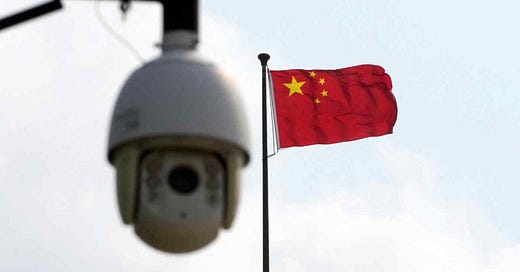China begins smartphone inspections as part of espionage law
Some foreigners fear having electronic devices examined when entering country
Source: https://asia.nikkei.com/Politics/China-begins-smartphone-inspections-as-part-of-espionage-law
YUKIO TAJIMA
BEIJING -- Chinese national security authorities will have greater power to inspect smartphones and other electronic devices beginning Monday, one year after a stronger anti-espionage law took effect, raising fears that foreigners will face such inspections upon entering the country.
The new espionage law broadens the information covered to anything involving "national security and interests." National security authorities now are permitted to inspect baggage and electronic devices simply on suspicion of espionage.
Operational guidelines permit authorities to examine such phones and personal computers by showing a police ID or other identification.
Fear is spreading on social media that foreigners and others will be subjected to these inspections when entering China. Media reports show the Ministry of State Security, China's intelligence agency, has denied that all arrivals will undergo smartphone inspections.
Chinese authorities have detained at least 17 Japanese nationals since a 2014 espionage law went into effect, and five have yet to be released. A local Astellas Pharma executive was detained in March 2023 and arrested in October. In March 2024, Japan was notified that prosecution was being considered.
China's push to mobilize the entire nation to expose spies is underway. Media affiliated with the Chinese Communist Party report the cities of Shanghai and Chongqing as well as the provinces of Yunnan and Anhui each held meetings on national security in May and June. All were organized by the local party leadership.
Han Jun, then the Communist Party secretary of Anhui Province in eastern China, called for "the enhancement of big data monitoring and analytics" to crack down on espionage. Those who met in Chongqing agreed "to do everything in our power to ensure political security and prevent the infiltration of hostile forces."
China also is raising awareness of anti-espionage efforts in educational settings. The State Security Ministry in June sent officials to schools in Beijing -- from the elementary level to universities -- to give lectures on national security to students and others. Security risks from advanced technologies including artificial intelligence have been discussed as well.
The stronger espionage law requires citizens to report any spying they uncover. It stipulates awards and rewards to citizens when they contribute to anti-spy activities. A minimum of 100,000 yuan ($13,760) will be offered for particularly significant contributions.
In June, the State Security Ministry noted there had been two reports in the past two years on its official social networking accounts. The ministry cited 44 callers who received rewards of 30,000 to 100,000 yuan, along with 125 who obtained rewards of 10,000 to 30,000 yuan.



